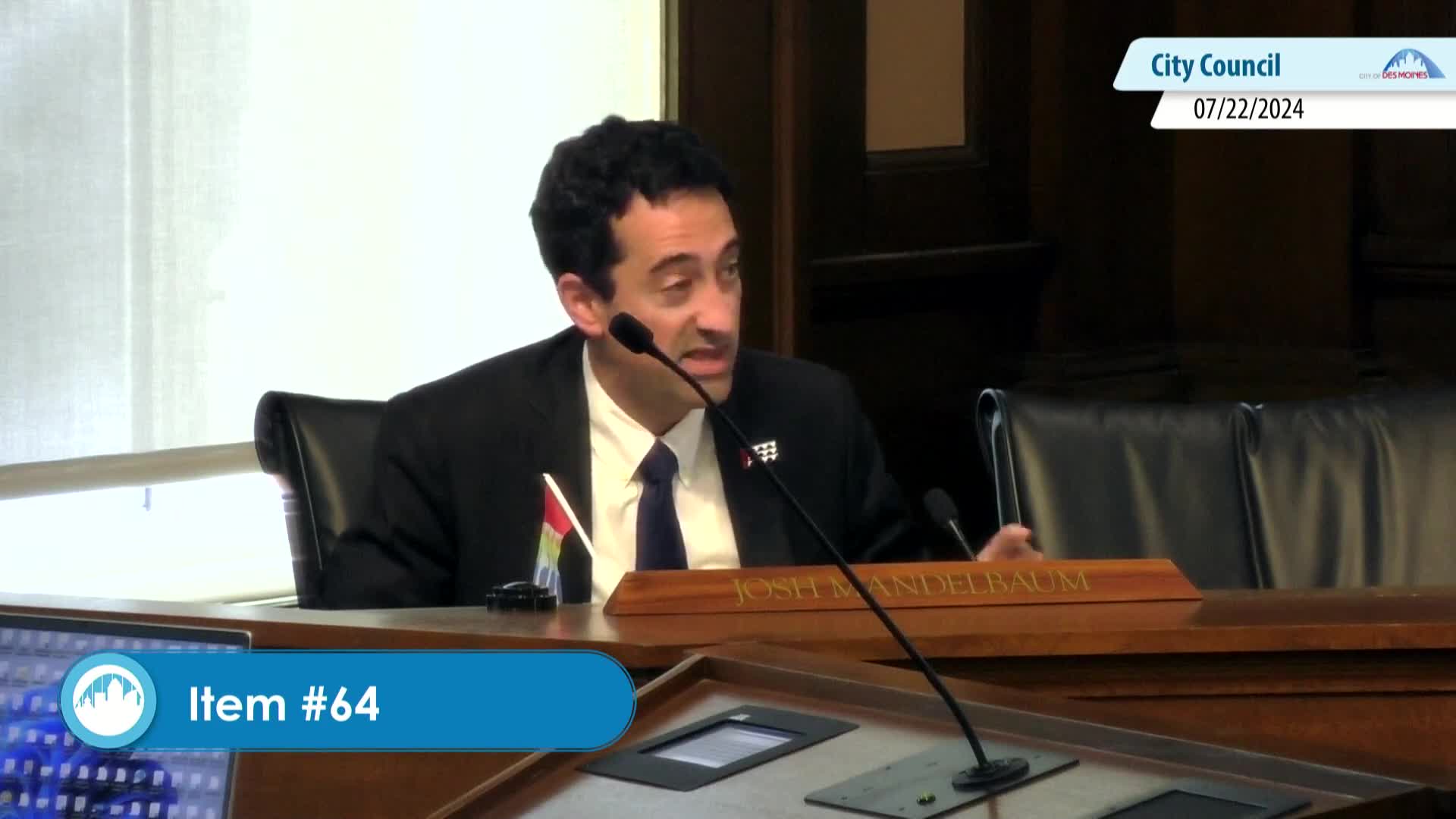City Council Approves Controversial Housing Project for Homeless
July 21, 2024 | Des Moines, Polk County, Iowa

This article was created by AI summarizing key points discussed. AI makes mistakes, so for full details and context, please refer to the video of the full meeting. Please report any errors so we can fix them. Report an error »

In a recent government meeting, officials discussed the approval of a new residential facility aimed at providing housing for individuals transitioning out of homelessness. The facility, operated by Hope Ministries, will consist of 12 units with shared amenities, including a kitchen, dining room, and recreational space, all situated in an accessible area within walking distance of public transit and community resources such as a library and pool.
Key features of the facility include a resident housing assistant to oversee property maintenance and resident issues, as well as access to case management services for residents. The facility will enforce a set of rules, and under state law, residents are subject to immediate eviction if they fail to comply, adding a layer of accountability not typically found in other housing situations.
Concerns from the community regarding security and property maintenance were addressed, with assurances that security cameras will be installed and overgrown shrubbery will be managed. Additionally, the facility's proximity to Wright Elementary School raised questions, but officials noted significant physical barriers, including Yater Creek and wooded areas, that separate the two locations.
The meeting highlighted a pressing need for more housing options in the community, particularly for individuals experiencing homelessness. A recent analysis indicated a demand for 333 rapid rehousing units and 523 permanent supportive housing units. The discussion also touched on recent legal changes that empower local governments to enforce ordinances related to homelessness, emphasizing the importance of such housing projects in light of increased enforcement pressures.
Council members expressed their commitment to integrating housing solutions within neighborhoods, countering the notion that facilities for formerly homeless individuals should be isolated or stigmatized. The council ultimately moved to approve the zoning change necessary for the project, with further conditions to be determined by the Board of Adjustment, which will oversee compliance with local regulations.
Key features of the facility include a resident housing assistant to oversee property maintenance and resident issues, as well as access to case management services for residents. The facility will enforce a set of rules, and under state law, residents are subject to immediate eviction if they fail to comply, adding a layer of accountability not typically found in other housing situations.
Concerns from the community regarding security and property maintenance were addressed, with assurances that security cameras will be installed and overgrown shrubbery will be managed. Additionally, the facility's proximity to Wright Elementary School raised questions, but officials noted significant physical barriers, including Yater Creek and wooded areas, that separate the two locations.
The meeting highlighted a pressing need for more housing options in the community, particularly for individuals experiencing homelessness. A recent analysis indicated a demand for 333 rapid rehousing units and 523 permanent supportive housing units. The discussion also touched on recent legal changes that empower local governments to enforce ordinances related to homelessness, emphasizing the importance of such housing projects in light of increased enforcement pressures.
Council members expressed their commitment to integrating housing solutions within neighborhoods, countering the notion that facilities for formerly homeless individuals should be isolated or stigmatized. The council ultimately moved to approve the zoning change necessary for the project, with further conditions to be determined by the Board of Adjustment, which will oversee compliance with local regulations.
View full meeting
This article is based on a recent meeting—watch the full video and explore the complete transcript for deeper insights into the discussion.
View full meeting
